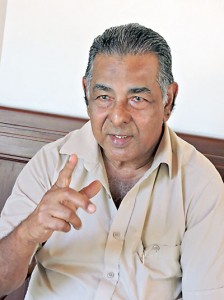News
Reliance on road fines questioned by experts

Retired deputy inspector-general of traffic, Camillus Abeygoonewardene
The move to rely heavily on increasing fines to minimise traffic accidents instead of opting to enforce other methods has been questioned by traffic experts.
Retired deputy inspector-general of traffic, Camillus Abeygoonewardene said escalating road violations could be stemmed by, having a de-merit system, deploying police officers in civies and deploying mobile units using unmarked cars and motorbikes.
He said mobile unmarked vehicles were also essential to nab people violating traffic rules.
“Since they began operating private buses haven’t shown consideration to other drivers. In late 1991 we deployed police in civilian clothes to ride on buses and be on the look-out for traffic offenders. They would give information to other police officials in uniform who would catch the offenders,” the Ex-DIG said.   The new law on a De-merit System for specified driving offences and Driver Improvement Point System (DIPS) is on hold and to be implemented.
A lack of proper investigations into the causes of fatal road accidents was a moot point in the failure to address the issue effectively.
Another strategy is to have sobriety checkpoints on roads. However, the law enforcers should acquire inhalation devices that can assess the level of alcohol in the body.
He also pointed out loopholes in the implementation of traffic law “Some of the most dangerous violators such as SUVs, Pajeros, and buses are rarely apprehended. This is a weakness in the enforcement of the law,” he said.
SSP Ruwan Gunasekera said that, to date there is a law that police officers can go in civies and nab the violators and impose spot fines.

